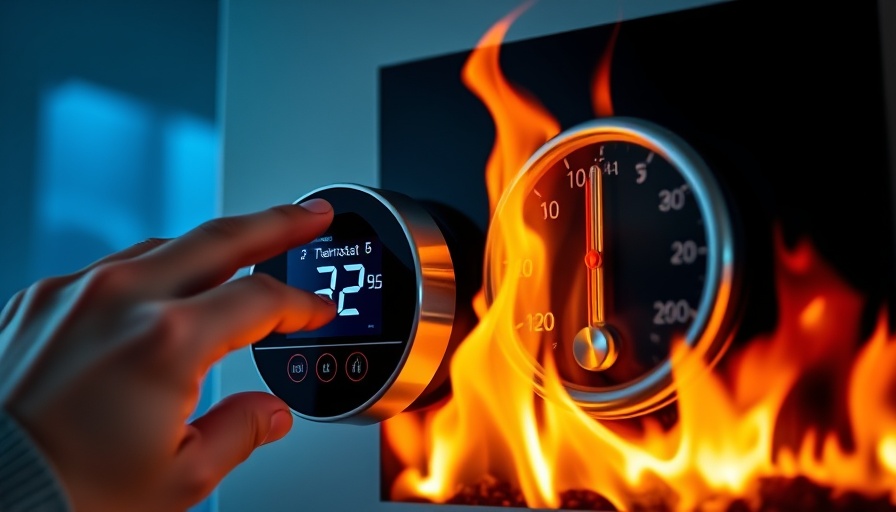
Mastering the Mindset: The Power of a Thermostat Mentality
In the realms of personal development and leadership, the adage to "be a thermostat, not a thermometer" has emerged as a significant mantra. This concept becomes particularly vital in high-stress professions, such as law enforcement, where maintaining composure can determine the outcome of interactions in volatile environments. Unlike a thermometer, which merely reflects conditions without influencing them, a thermostat actively regulates and sets the temperature of a situation, significantly impacting the efficacy of conflict resolution.
The Importance of Proactivity in Policing
For police officers, adopting a thermostat mentality is essential in creating a safer community. Officers equipped with this mindset not only react to external stresses but actively control the interactions they have with the public. By asserting influence over the 'temperature' of a call, they can enhance communication and foster a collaborative atmosphere that promotes de-escalation. This proactive approach can lead to more constructive engagements, which are crucial in building community trust.
Enhancing Officer Wellness: A Cornerstone of Effective Policing
Officer wellness is intrinsically linked to their ability to perform effectively. A physically prepared officer can maintain composure in high-pressure situations. Regular physical training and mental health support can fortify an officer’s internal 'thermostat,' allowing them to stay calm and collected when faced with adversarial attitudes or dangerous scenarios. Departments must prioritize comprehensive wellness programs that assess both physical readiness and mental health, enabling officers to embody the characteristics of proactive leaders.
Real-World Applications: Strategies for Officers
The transition from a reactive to a proactive approach as a law enforcement officer requires ongoing commitment and systematic training. Implementing rigorous training programs that simulate realistic scenarios can help officers practice this mindset. Utilizing body cameras or public safety tech provides transparency and fosters trust within the community while training officers on effective communication techniques can further enhance their ability to de-escalate tensions.
Crisis Management: Transforming Challenges into Opportunities
In the context of crisis response management, the differences between a thermostat and thermometer are pivotal. Officers who lead with a thermostat mentality can effectively manage crises by anticipating challenges and responding with stability. When officers set the tone for an interaction, they guide the narrative of the engagement, reducing misunderstandings and potential hostilities.
Building Community Trust Through Officer Interaction
Effective policing goes beyond mere enforcement of the law; it is about building relationships with the community. Officers should view their interactions as opportunities to establish trust through transparency and engagement. Understanding community needs and sentiments will help tailor policing strategies to better serve the public, bridging gaps that have historically strained relations between law enforcement and citizens.
Conclusion: The Path Ahead for Law Enforcement
In a rapidly evolving public safety environment, the shift from a thermometer to a thermostat approach is not just about individual officers making personal changes but also about how departments cultivate this mindset. The cultivation of a proactive culture within law enforcement not only enhances individual officer effectiveness but also improves public perception and community relations. As the landscape of policing continues to change, embracing this thermostat mentality could prove to be one of the most powerful tools in the sector's ongoing evolution.
 Add Row
Add Row  Add
Add 

 Add Element
Add Element 




Write A Comment